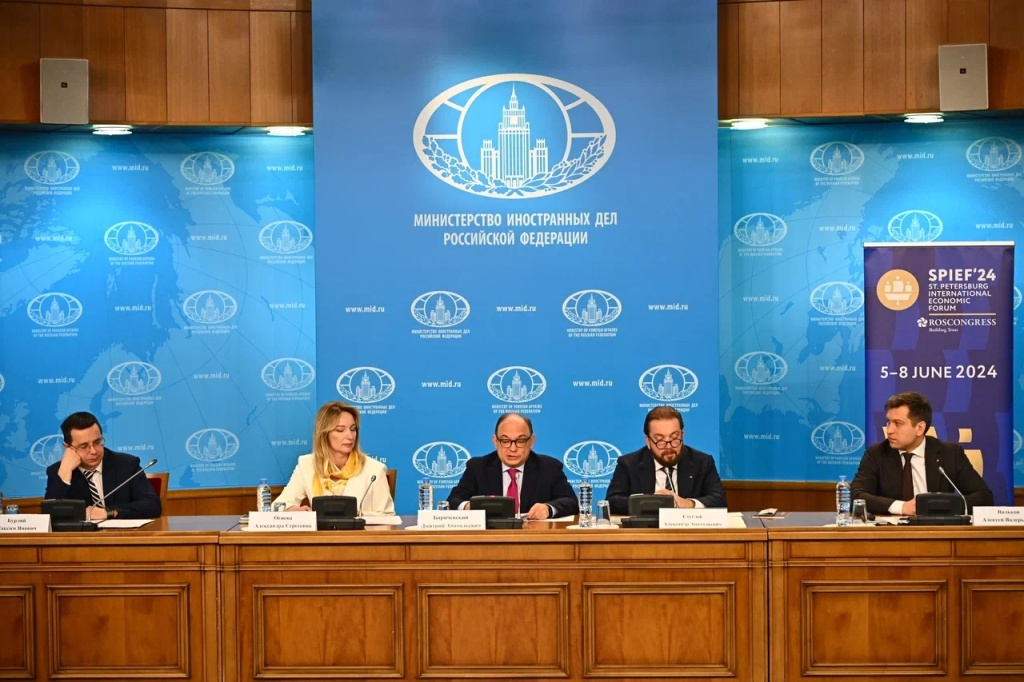
'Gazelle' Company Should Keep Running: What Happens With Innovative SMEs in Russia
On 23 May the SME panel session called The Technological Breakthrough: The Role of Small and Medium-sized Innovative and High-tech Companies in the Russian Economy discussed consolidated measures to support small and medium-sized high-tech businesses.
Opening the discussion, Dan Medovnikov, Editor-in-Chief of Stimul Magazine and Director of the Institute of Innovation Management of the Higher School of Economics National Research University, reminded that a technological breakthrough is impossible without small and medium-sized businesses. However, Russian ‘Gazelle’ companies (i.e. fast-growing, technologically advanced medium-sized companies) ran into serious problems following the 2008 crisis, so the state had to launch a support program for such enterprises.
Oleg Fomichev, State Secretary – Deputy Minister of Economic Development of the Russian Federation, noted that a complex national innovation system has been set up in Russia, but it is undercapitalized. “We have institutions for small business support: the Russian Venture Company, SME Corporation, Skolkovo grant programs and so on, but all foreign counterparts of these organizations have more resources than we do,” Oleg Fomichev said.
He also added that for a while two simultaneous and parallel support systems – for innovative businesses and for small ones – has been an obstacle, although the former is part of the latter, and the support system should be the same. In addition, the authorities set the objective of creating 8 million jobs in small businesses, and the new tools will focus on production and technological entities of small and medium-sized businesses. The Sodeistviye Foundation and RVC support the SMEs. The following step is spreading support tools to regional ‘champions’.
Alexander Braverman, General Director and Chairman of the Board of the Russian Small and Medium Business Corporation, spoke about his company’s areas of expertise: support for start-ups and an investment elevator. “Last year we allocated over 2 billion roubles to support start-ups, but these were just a few companies. We intend to grow this support,” noted Alexander Braverman. Moreover, high-tech companies crank up their procurement: with 1.5 trillion roubles in 2016, SME Corporation plans to reach 3 trillion roubles in 2018.
In her speech, Natalya Popova, First Deputy General Director of Innopraktika, focused on promoting the value of human capital, which is the company’s objective. Innopraktika assesses whether Gazelle companies comply with requirements to receive support, and also brings together high-tech SMEs and large corporations looking for a product.
In his report Alexey Borovkov, Vice Rector for Innovative Projects of Peter the Great St. Petersburg Polytechnic University, noted the convenience of a university space as an ecosystem for Gazelles breeding.
Sergey Borisov, Chairman of the Board of Trustees of OPORA ROSSII All-Russian Non-Governmental Organization of Small and Medium-Sized Businesses, was sceptical in his address. “Innovative companies can compete in foreign markets, which is good, but the day is young, as high-tech enterprises are still very few and far between,” said Sergey Borisov. He added that the ecosystem – infrastructure, techno parks, business incubators –created for nurturing such companies is quite good, but it requires regular audit, upgrade, a clusters program to place production facilities, etc. In Russia only 1.5% of companies can be considered innovative, and even less than that are blazing Gazelles. Sergey Borisov also recommended diving into foreign colleagues’ experience and using their it instead of treading the water.
Then representatives of large corporations and innovative Gazelle companies shared their experience of interaction with each other in the Russian reality. Irina Mitichkina, Director of Procurement Department of Russian Railways, said that the corporation increases the share of purchases from high-tech SMEs. And RusHydro lists consumer properties of the product to be procured, not its technical features. This way the corporation stimulates the market to offer alternative solutions, said Denis Toropov, Director of Procurement of RusHydro.








